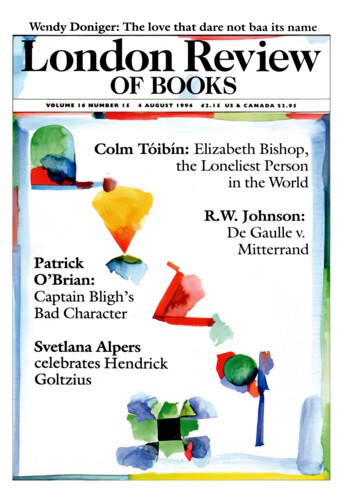Us
Silence parked there like a limousine;
We had no garage and we had no car.
Dad polished shoes, boiled kettles for hot-water bottles,
And mother made pancakes, casseroles, lentil soup
On her New World cooker, its blue and cream
Obsolete before I was born.
I was a late, only child, campaigning
For 33 rpm records.
Dad brought food parcels from City Bakeries
In crisp brown paper, tightly bound with string.
So many times he felt annoyed
When a visitor left without shutting the gate.
Now someone will bid for, then clear these rooms,
Stripping them of us. We were that floral wallpaper,
That stuck serving-hatch, radiograms polished and broken,
Dog-eared carpet-tiles that understood us,
Our locked bureau, crammed with ourselves.
Ripening
My mother buys my dad a new tweed jacket
Very rarely, always at the sales.
Upstairs in one of two mahogany wardrobes
He hangs it like a shot bird to be cured,
New for a decade, it takes on the smell
Of jackets round it, his scent, the reek of mothballs.
On coathangers, suspended in the dark,
Herringbone accepts the gift of waiting.
Unseasoned pockets sense how ripened pockets
Enfold receipts and stones, then yield up string.
As they get worn, my mother schools thinned elbows
In leather patches, and younger jackets learn
To renounce fashion long before he wears them.
‘Is that a new jacket?’ ‘Yes,’ he says, ‘it is.’
Loganair
Below, a freelance palaeontologist
Gets stuck in with his JCB,
And here, from the winter airspace of Fife,
Coal-dark, nocturnal Burntisland
’s drip-painted with streetlamps, the Forth’s edge
Scribbled with motorway lights.
You’re invisible. I’m fourteen thousand feet up,
Viewing the scan of our unborn child,
Nearing you over the prop-driven landscape,
Its November villages insect wings
Shimmering in carbon, carrying towards you
Cellophaned, machine-readable flowers.
The Apocrypha in Scots
He also told them a parable: ‘Wid yi tak a jaudie or kirnels if ye needit plowt? Wid thae hangrells no faa wi emmledeug? Sae shall Ah. Aince a mannie speerit o a macer, “Hi, maun, is yon a bangie in yir ee?” An thi macer says, “Naa, for ma ee’s watter’s no a sucken.” An the mannie wiz quait; he seen the licht, an went aff.’ But they were puzzled at this, for they did not understand him. Some of them translated with the aid of a thesaurus. But others maintained no translation was possible. Out of this much bloodshed arose, and he left that Country to go to the coast. There he took ship to another place, where they said, ‘This man is a prophet.’
Send Letters To:
The Editor
London Review of Books,
28 Little Russell Street
London, WC1A 2HN
letters@lrb.co.uk
Please include name, address, and a telephone number.

